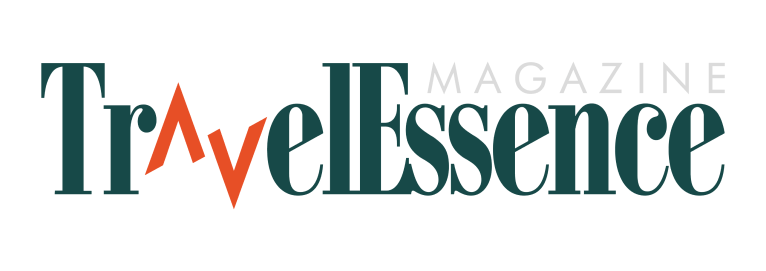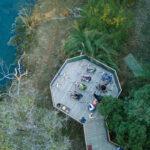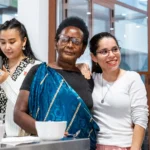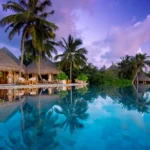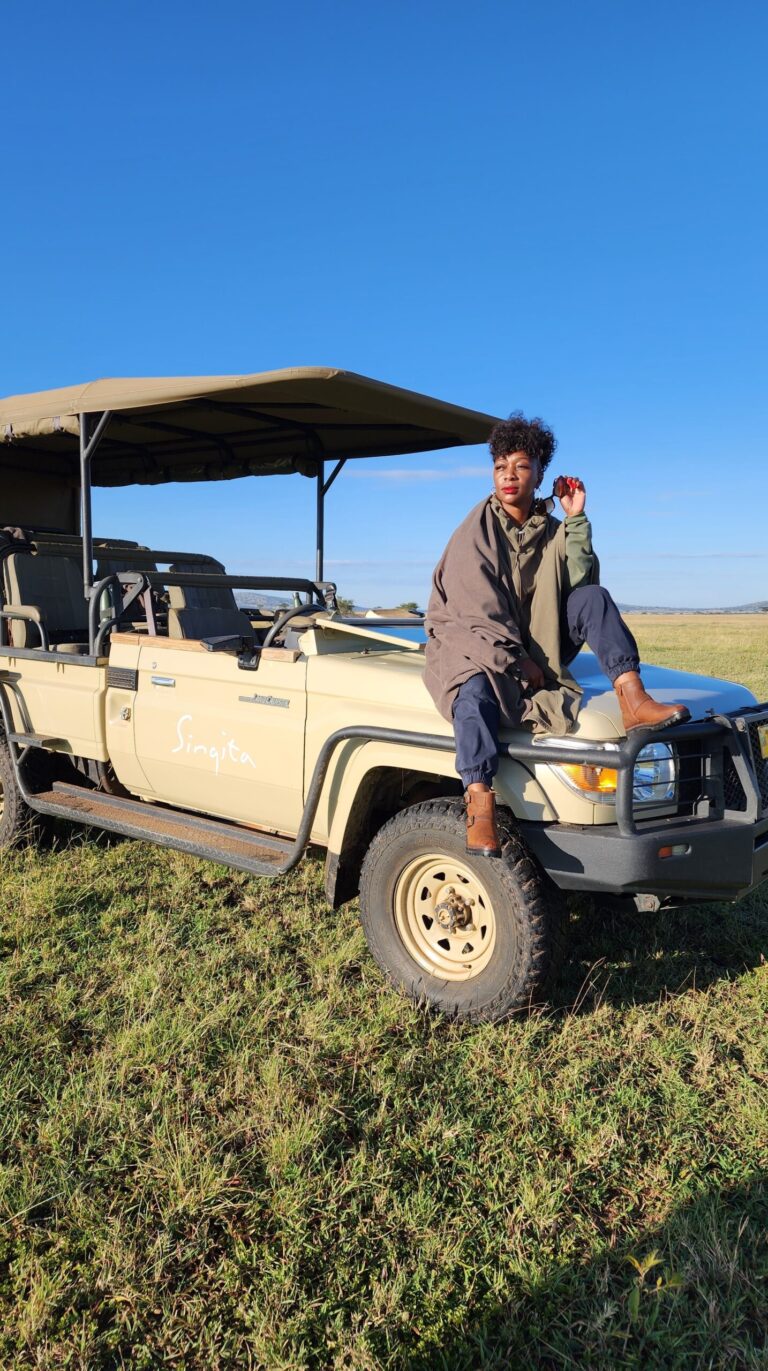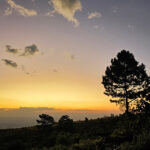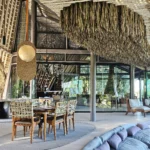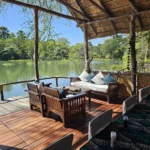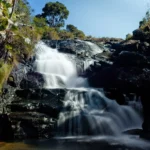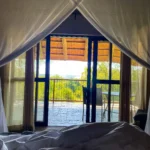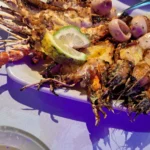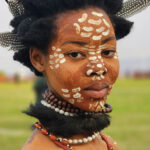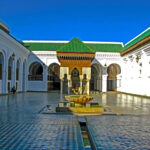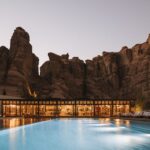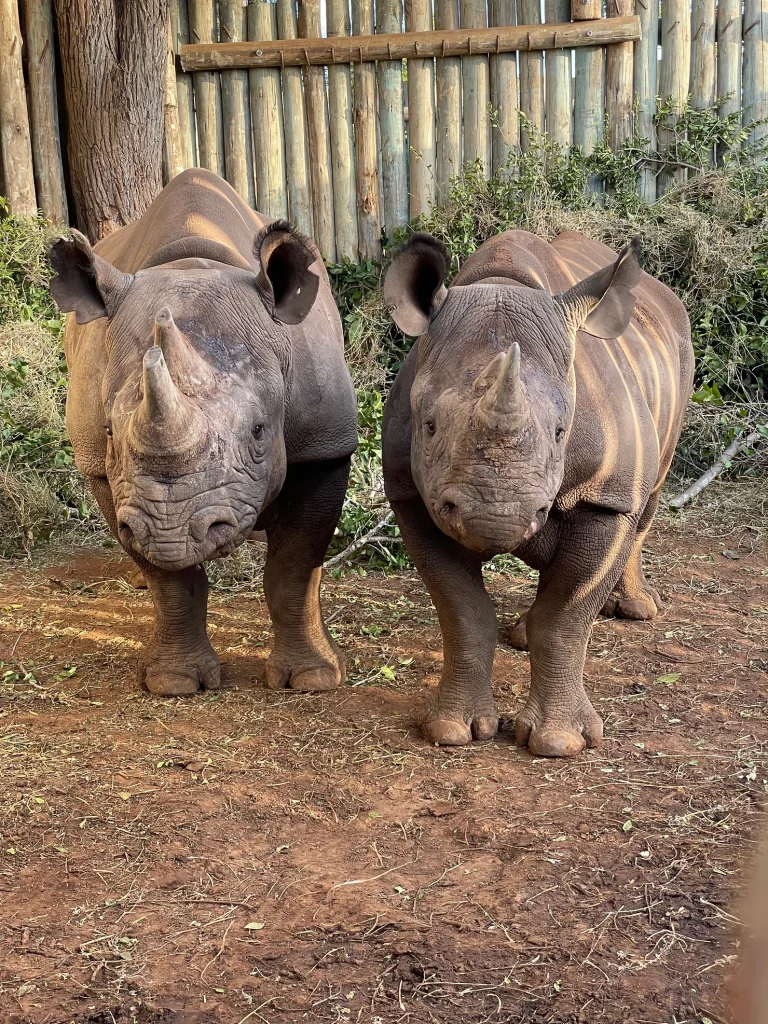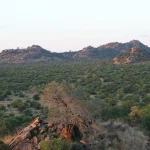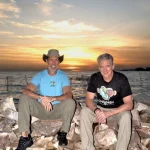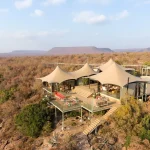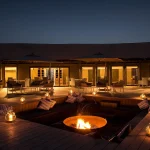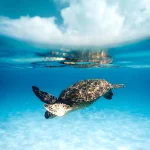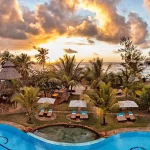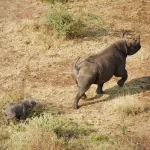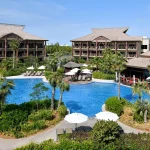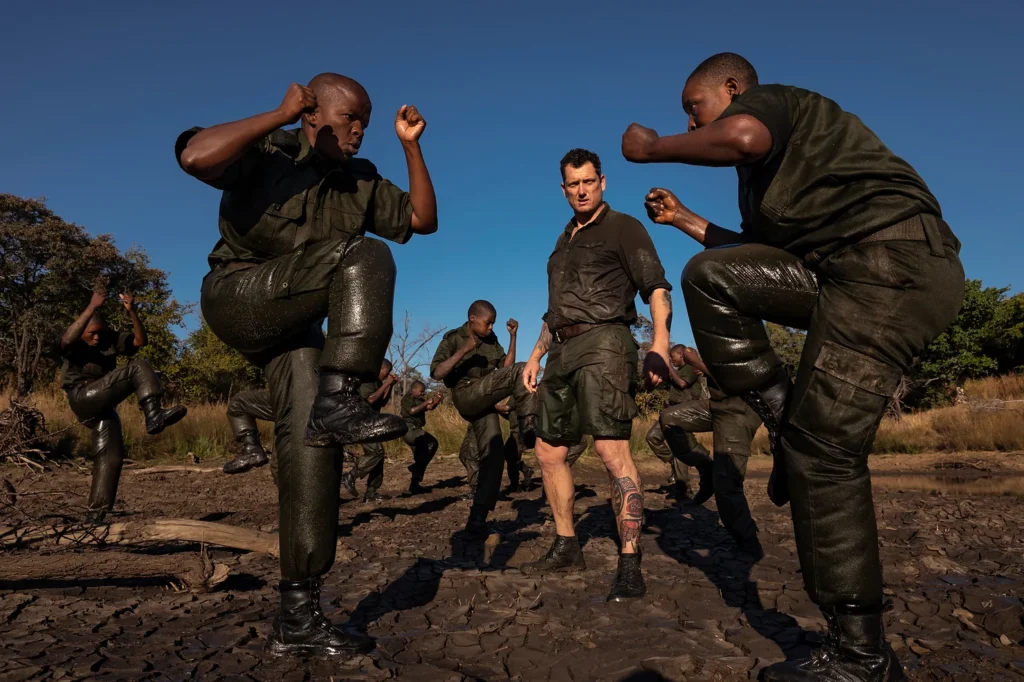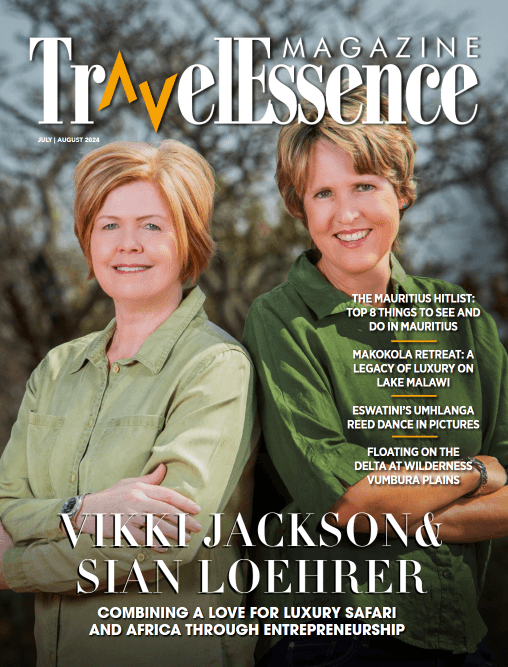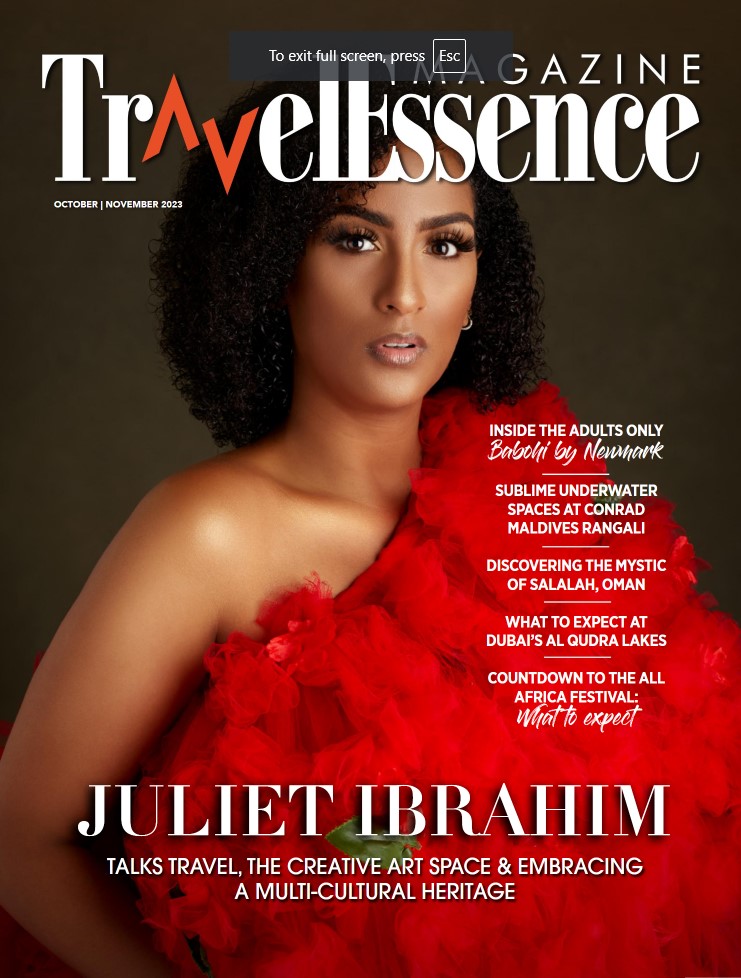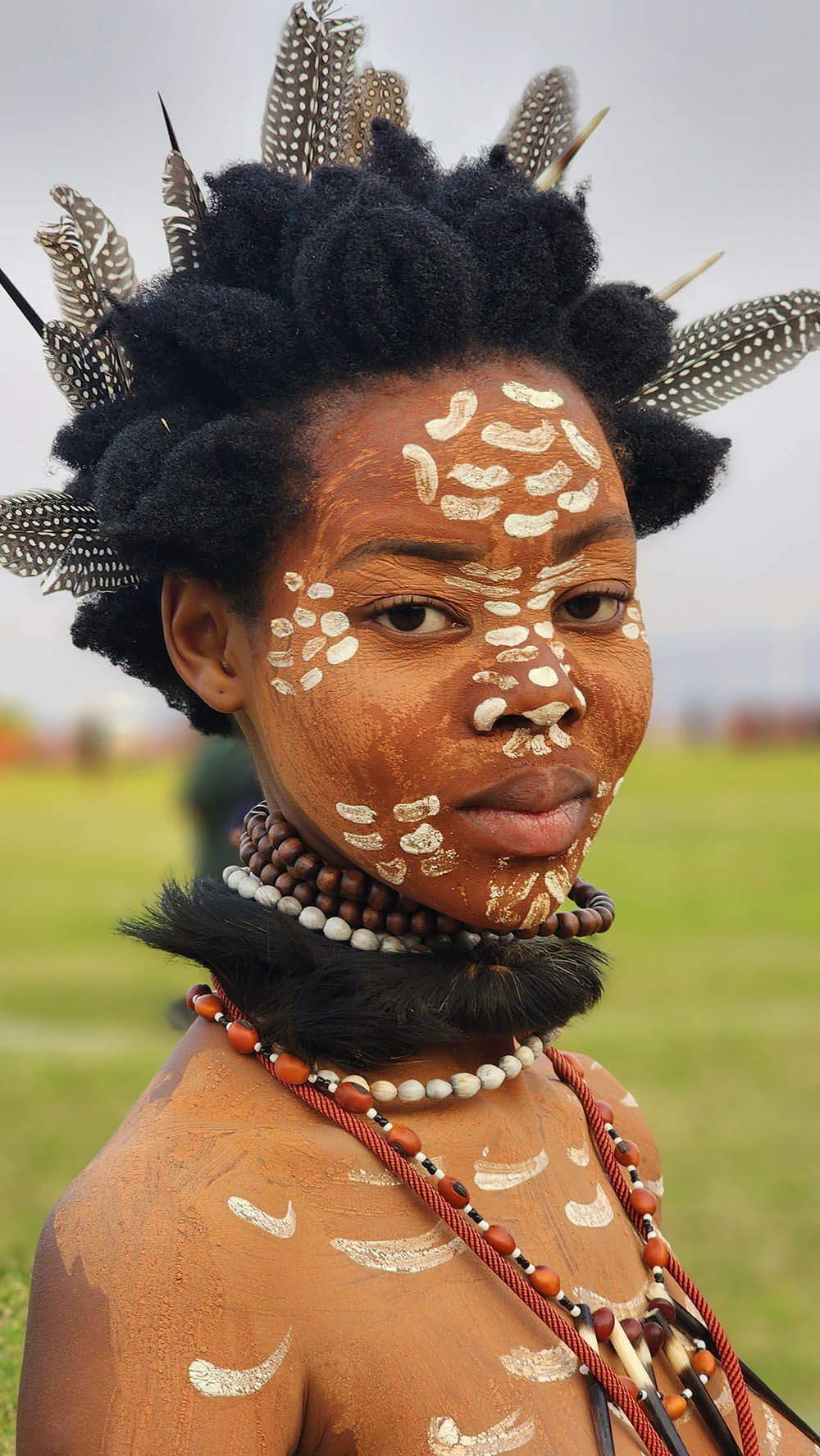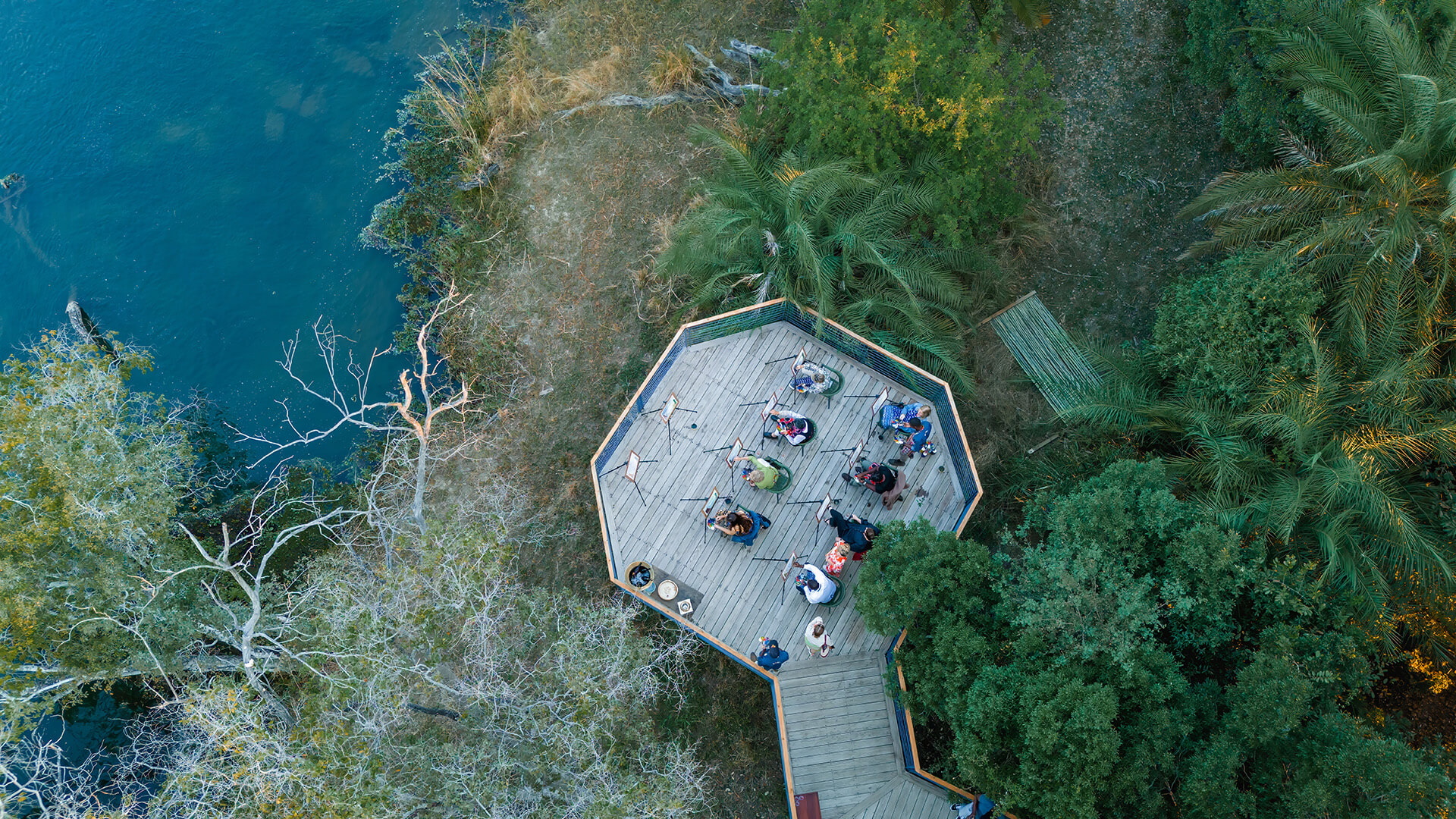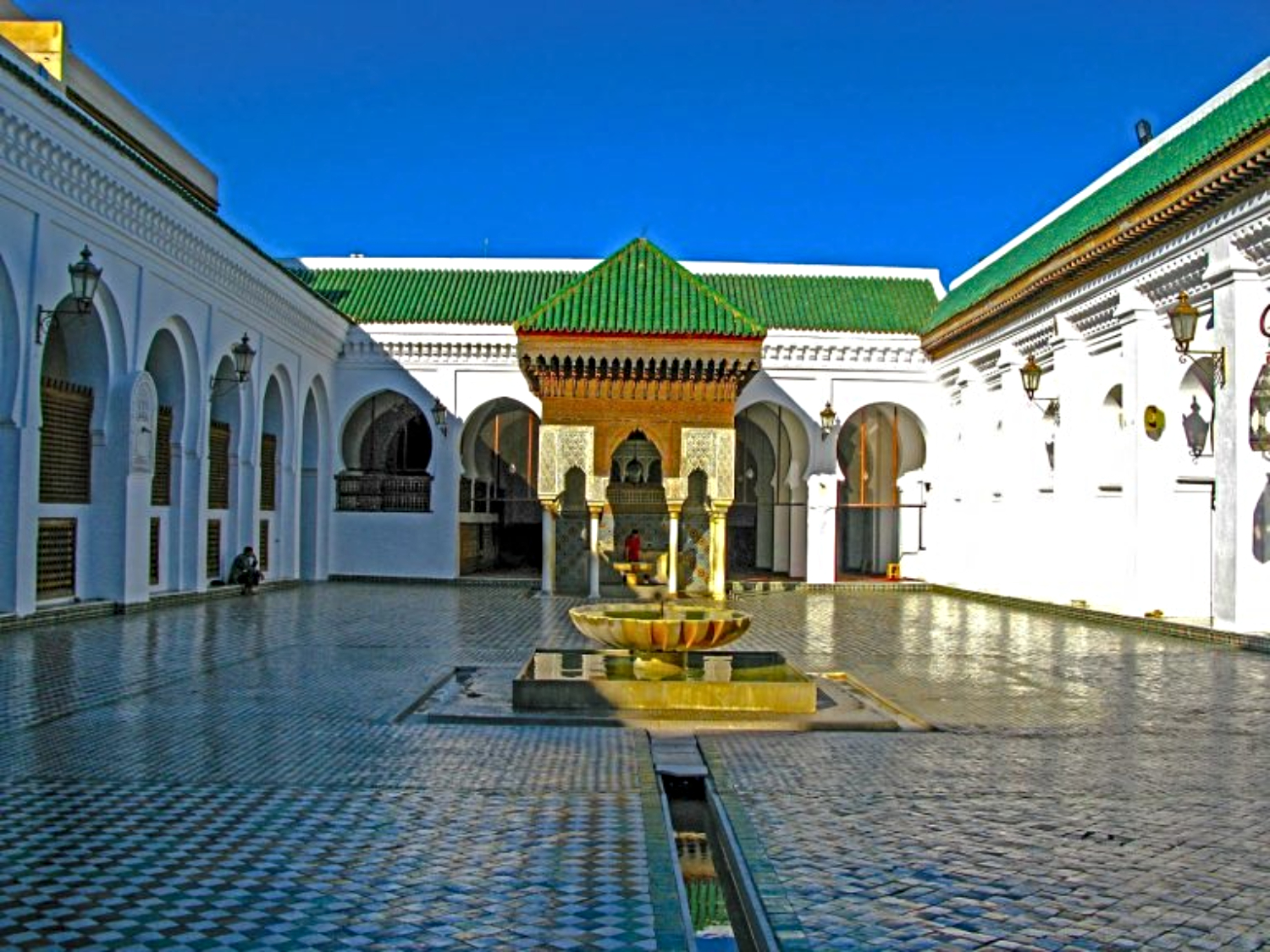Akashinga is an all-female, armed anti-poaching unit that is responsible for protecting endangered animals in Zimbabwe. “Akashinga” – meaning ‘The Brave One/s in Zimbabwe’s Shona dialect – is an initiative that prides itself in being one of few if any at all in the world, whose efforts have resulted in nature reserves being managed and protected solely by women.
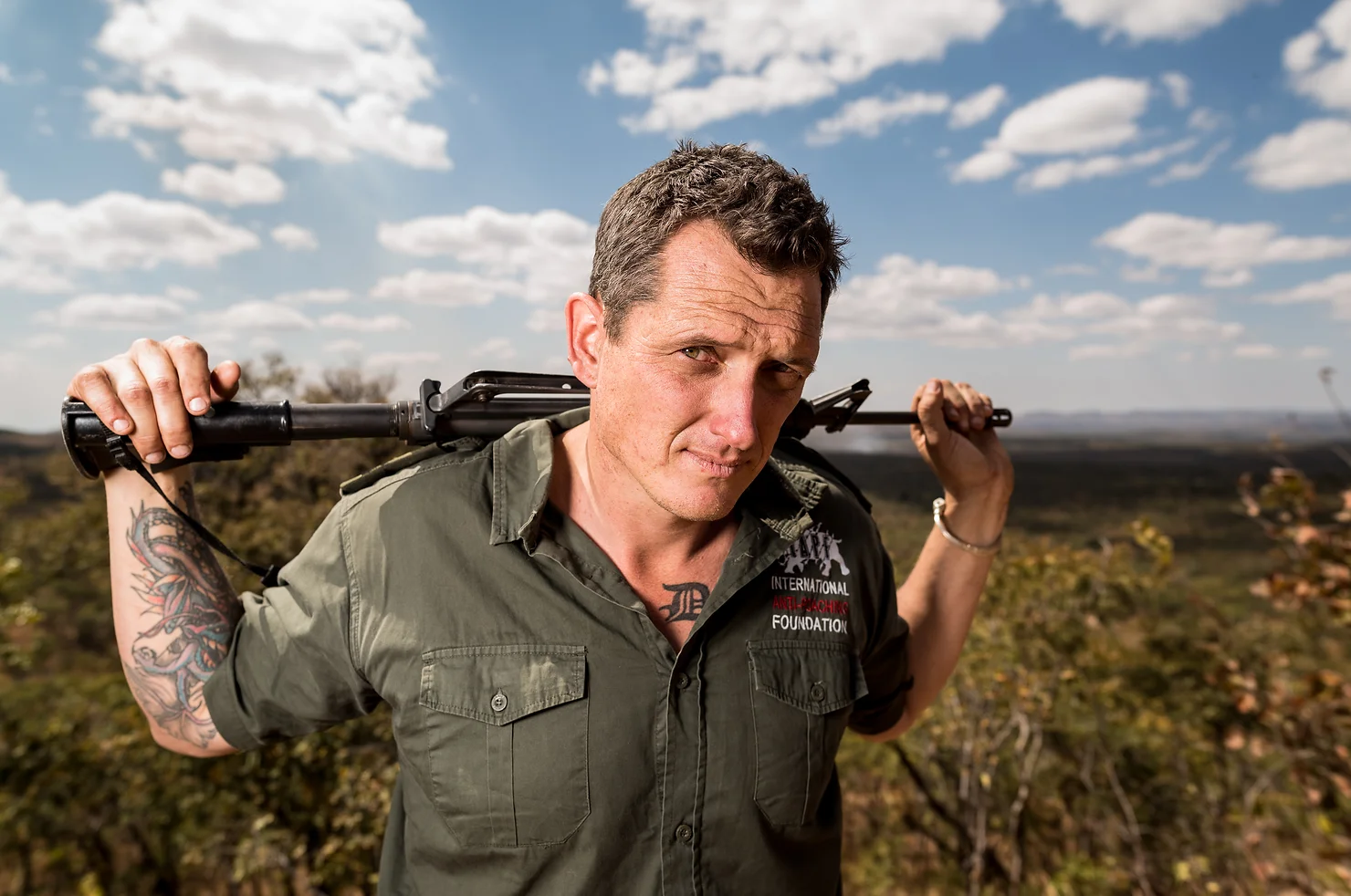
Founded in August 2017 by Damien Mander, an Australian native with a background in Special Forces and 3 years spent in Iraq, Akashinga credits its success to the female rangers’ commitment to personal and community development, coupled with Damien’s training tactics, as he was already a trained military man when he started the International Anti-Poaching Foundation (www.iapf.org) in 2009. Travel Essence Magazine caught up with Damien to go over what inspired his transition from military to conservation, and how this first all-female-led initiative is making a huge difference to the region’s collective efforts in protecting wildlife.
1. What first spurred you to become involved in the anti-poaching movement?
My background was as an Australian Navy clearance diver and then with special operations. I went on to work in Iraq for 3 years as part of the coalition effort. I started the International Anti-Poaching Foundation (www.iapf.org) in 2009 and wanted to carry a similar theme from my military days into conservation.
2. How has the community responded to this program? And how are they benefitting?
We began to experience constant conflict with local communities, and this made me think back to all the mistakes we had made in Iraq. We had to think outside the box and while I saw other industries progressing by having more women in management, conservation was stifling. An article in the NY Times in early 2017 about the US Army Rangers putting women through training for deployment, and not just desk work, made me really look hard and thus came the idea of the all-female program.
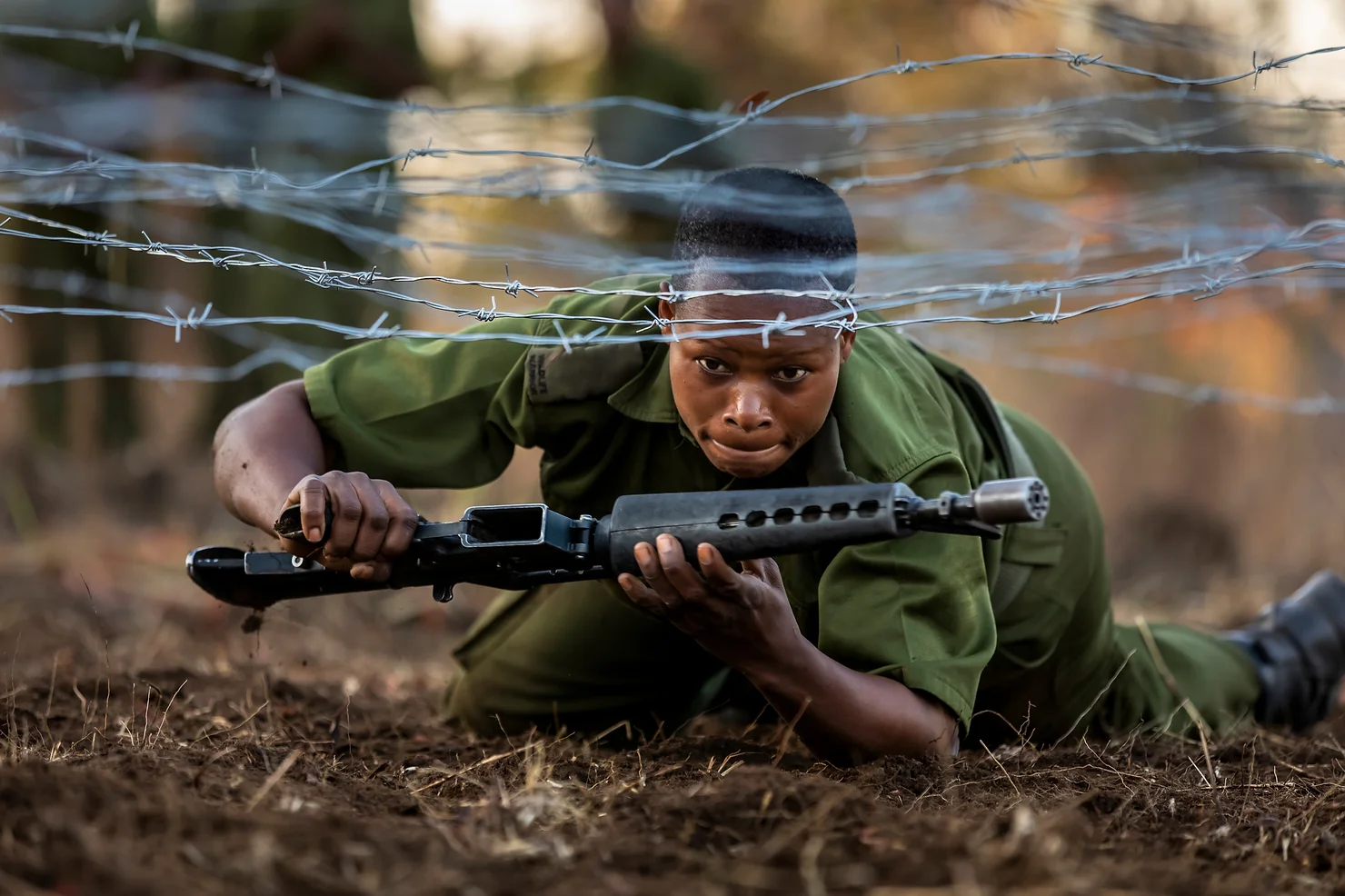
3. How did the first team of Akashinga take shape and why did you select them specifically?
From 2009 to 2017 the IAPF ran conservation programs that were largely focused on law enforcement. In conservation, tactics were becoming increasingly militarized across the world in an act of retaliation to poaching and desperation to defend what was left. We wanted to explore new methods which reunited conservation and community, so in August 2017 we set out to recruit and train the first all-female, armed anti-poaching unit in the world in an abandoned trophy hunting reserve in Zimbabwe. Making over 200 arrests in the first 3 years of operation, these women helped drive an 80% downturn in elephant poaching in Zimbabwe’s Lower and Middle Zambezi Valley, one of the largest remaining populations left on earth. The concept has now taken off and we are in the process of training 240 more women for full-time positions as we scale towards 1000 rangers and a portfolio of 20 parks by 2025.
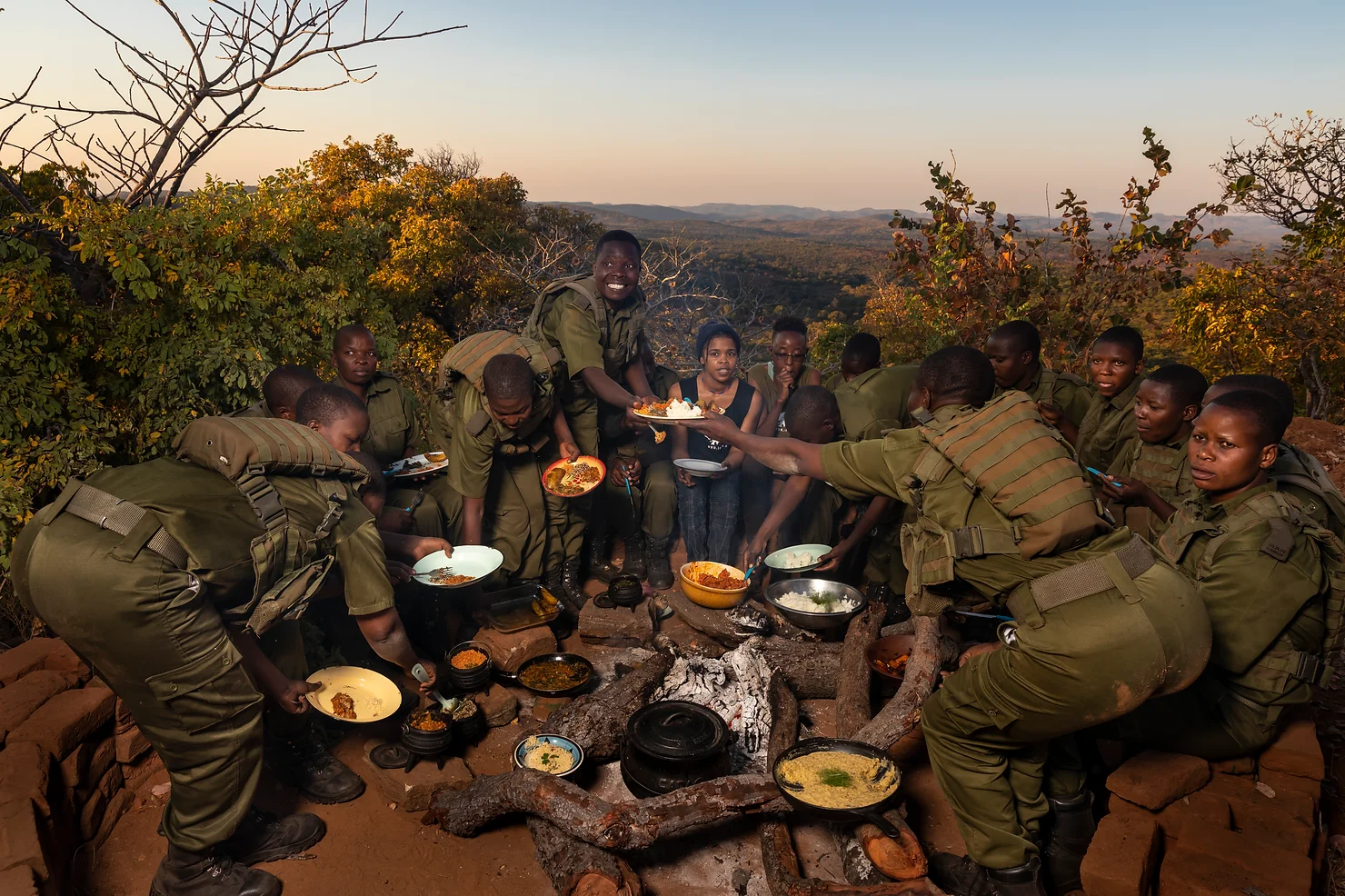
4. How has Akashinga changed the conservation game?
The Akashinga program we are running focuses on re-appropriating trophy hunting wilderness areas in Africa that are being left vacant as the hunting industry has a downturn due to less business and shrinking wildlife populations. Collectively these areas across Africa are the size of Texas. They have equal biodiversity importance as national parks and generally greater strategic importance as they surround national parks and border communities.
Historically, these areas have not had great support from the non-profit sector due to the nature of business. This lack of support has carried on into the current climate and these blocks are being left to die. If we were to advertise that we were going to wipe out 700km2 of national parks across Africa, there would be an international outcry of support. Well, this is happening with these hunting areas, silently, and little is being done about it. We have been partnering with local stakeholders and implementing an alternate economic model in Zimbabwe where 20% of the country’s landmass is set aside for hunting.
In the initial pilot area with the Akashinga model, we were able to put the same amount of investment into the local community every 34 days as what trophy hunting was able to do per annum, motivating conservation from the surrounding communities. We have an economic alternative to hunting which for us, only works with women at the centre of the strategy. This involves acquiring long-term leases (up to 50 years) and managing these areas with the local community as a growing platform for empowering and educating women in rural Africa.
5. How has this program helped these women? How have you seen their work change local attitudes about the role of women?
The Akashinga rangers are carrying out one of the most demanding and respected jobs in the world while thriving at it and building their own lives, their families, and their communities in the process. For some of these women, joining Akashinga is more than a job but a change in life and an opportunity to feed their families. Some of these women have gone through years of domestic abuse and so Akashinga offers them a new start. But it does not come easy. We put them to the test through back-breaking exercises. We push them to their limits, and when they get to the other side, they emerge stronger, confident, and ready to face any challenge.
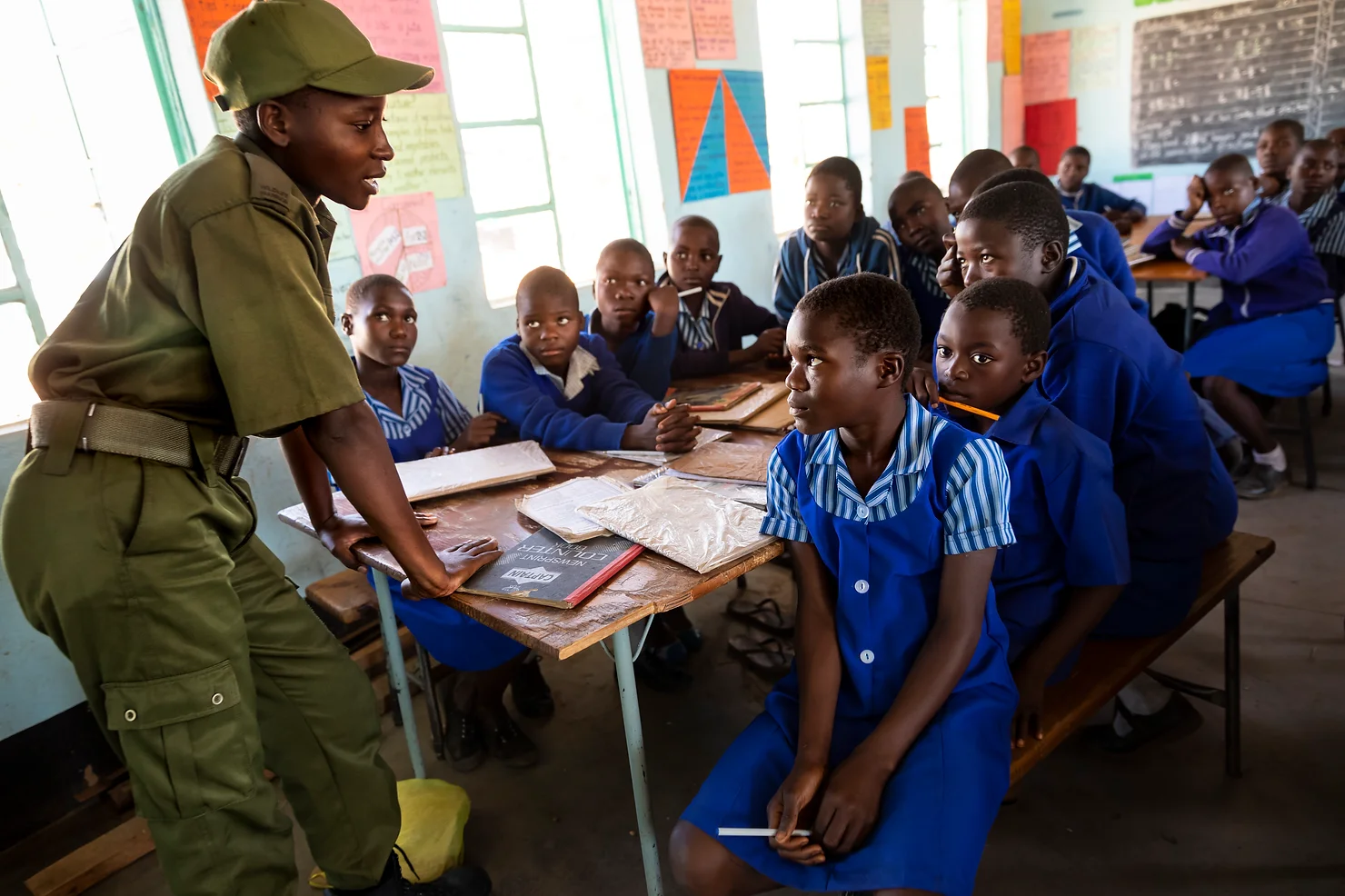
The decision to join Akashinga is not an easy one, as many of the women in the community are threatened by the poachers not to join as they will destroy their homes and even kill their families. However, once they harness the willpower to join, they can use their skills to fight back and arrest the poachers. Also, it’s important to note that women in the African community are generally trusted due to their motherly instincts. Therefore, they can easily form relationships with people in the village and get information on who is a poacher. This has helped us attain valuable information on poacher activity which often leads to successful arrests and wildlife being saved.
6. What are your plans going forward to help end poaching, specifically elephant poaching in
Zimbabwe?
Zimbabwe is home to the world’s second-largest elephant population and as the poaching wars rage on, the Akashinga rangers are essential in protecting these vulnerable species. As we expand in partnerships with local governments and communities, we will contract more and more wilderness areas that would otherwise be lost. In the process, we endeavor to protect biodiversity, which is the key, not just the elephants.
7. What do you consider to have been your biggest wins for the programme to date?
What excites me about this program are the possibilities. We started a trial in a small landlocked country of sub-Saharan Africa, in a conservation industry that is becoming increasingly antagonistic with local indigenous communities, on a continent that has had a 700% increase in armed conflict in the past decade. All we did was shift the male roles to construction and labor and put women into the power roles of law enforcement, management, and decision-making. In doing so, we completely deescalated local tension, and brought conservation and community together, while cutting our operational costs by two-thirds. The remaining third, invested mostly in women, becomes the most effective form of community development, while our core business of conservation is more successful than ever. The model is working and if this has been possible here in Zimbabwe, what is possible beyond Zimbabwe? What is possible beyond conservation?
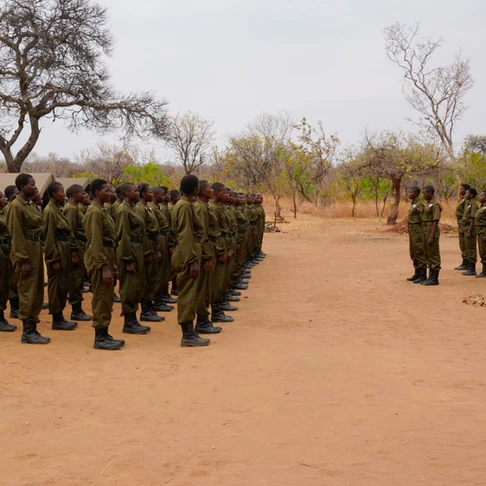
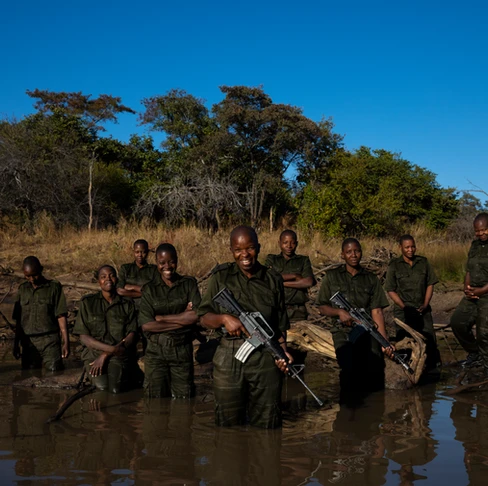
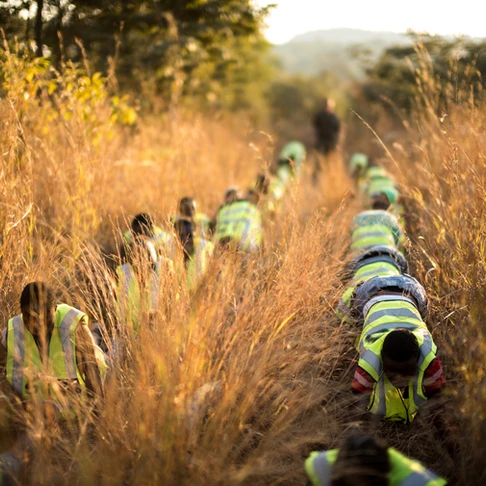
8. Comment on the topic of breaking stereotypes on gender roles in communities, especially as it relates to conservation and the Akashinga Ranger’s success story?
For us, the proof has been in the results really. Akashinga focuses on the exclusive employment of women to manage and protect these areas. The pilot area became the only nature reserve in the world to be protected by women, and the economics involved with doing things this way shifted the entire strategic approach of conservation. We chose to put women at the center of the model, focusing on their personal vision and development, and the results have been nothing short of inspirational as much as they have really aided in community development. When a community is witnessing positive changes through inspired guidance, conservation becomes an automatic byproduct led by the communities themselves.
PHOTO CREDITS:
Adrian Steirn / Brent Stirton / Kim Butts
